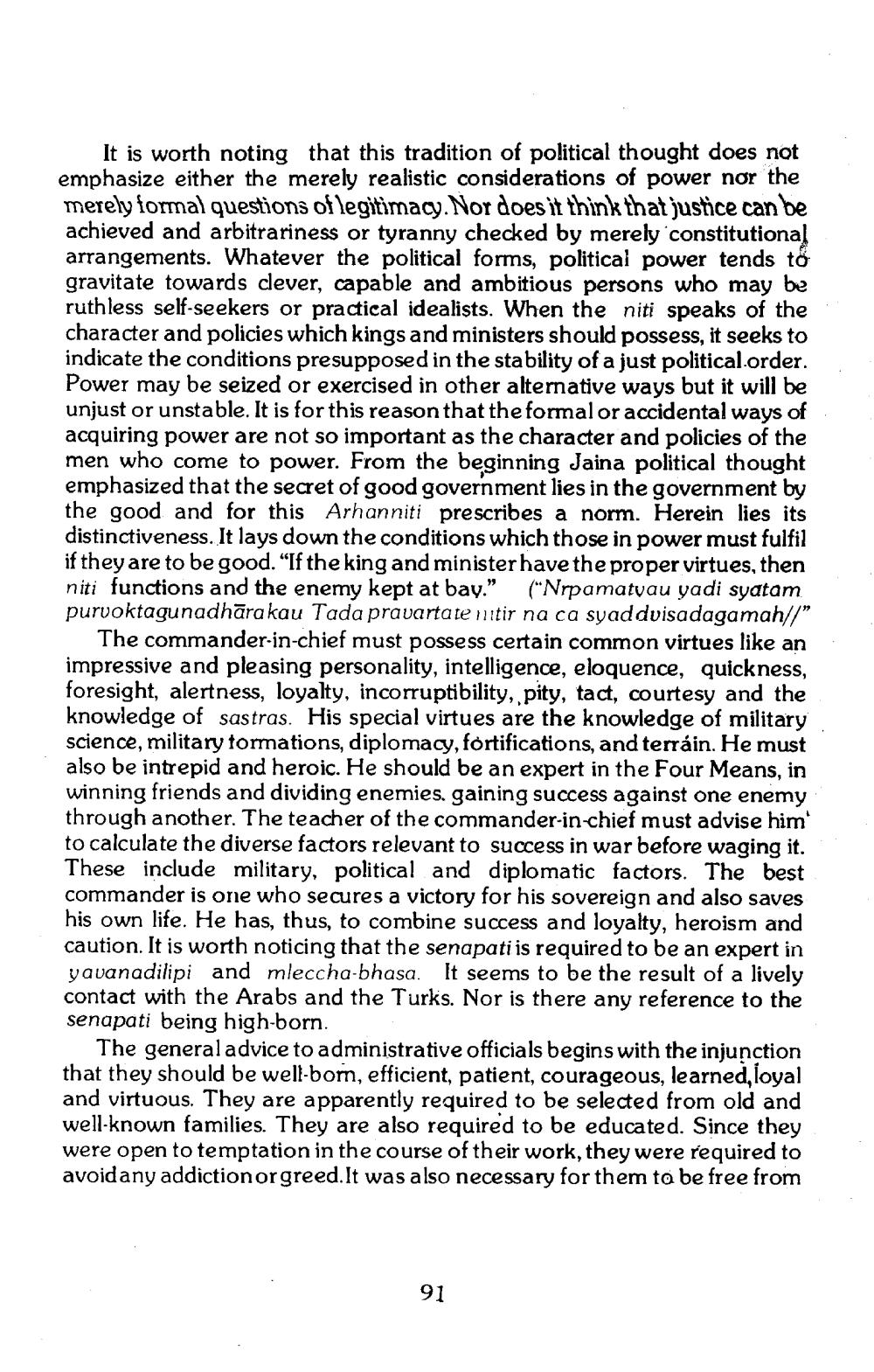________________
It is worth noting that this tradition of political thought does not emphasize either the merely realistic considerations of power nor the merely formal questions of legitimacy. Nor does it think that justice can be achieved and arbitrariness or tyranny checked by merely constitutional arrangements. Whatever the political forms, political power tends to gravitate towards clever, capable and ambitious persons who may be ruthless self-seekers or practical idealists. When the niti speaks of the character and policies which kings and ministers should possess, it seeks to indicate the conditions presupposed in the stability of a just political.order. Power may be seized or exercised in other alternative ways but it will be unjust or unstable. It is for this reason that the formal or accidental ways of acquiring power are not so important as the character and policies of the men who come to power. From the beginning Jaina political thought emphasized that the secret of good government lies in the government by the good and for this Arhan niti prescribes a norm. Herein lies its distinctiveness. It lays down the conditions which those in power must fulfil if they are to be good. "If the king and minister have the proper virtues, then niti functions and the enemy kept at bay.” (“Nrpamatyau yadi syatam purvoktagunadhāra kau Tada pravartate nitir na ca syaddvisadagamah /
The commander-in-chief must possess certain common virtues like an impressive and pleasing personality, intelligence, eloquence, quickness, foresight, alertness, loyalty, incorruptibility, pity, tact, courtesy and the knowledge of sastras. His special virtues are the knowledge of military science, military tormations, diplomacy, fortifications, and terráin. He must also be intrepid and heroic. He should be an expert in the Four Means, in winning friends and dividing enemies. gaining success against one enemy through another. The teacher of the commander-in-chief must advise him to calculate the diverse factors relevant to success in war before waging it. These include military, political and diplomatic factors. The best commander is one who secures a victory for his sovereign and also saves his own life. He has, thus, to combine success and loyalty, heroism and caution. It is worth noticing that the senapati is required to be an expert in yavanadilipi and mleccha-bhasa. It seems to be the result of a lively contact with the Arabs and the Turks. Nor is there any reference to the senapati being high-born.
The general advice to administrative officials begins with the injunction that they should be well-bom, efficient, patient, courageous, learned, loyal and virtuous. They are apparently required to be selected from old and well-known families. They are also required to be educated. Since they were open to temptation in the course of their work, they were required to avoidany addictionorgreed. It was also necessary for them to be free from
91




